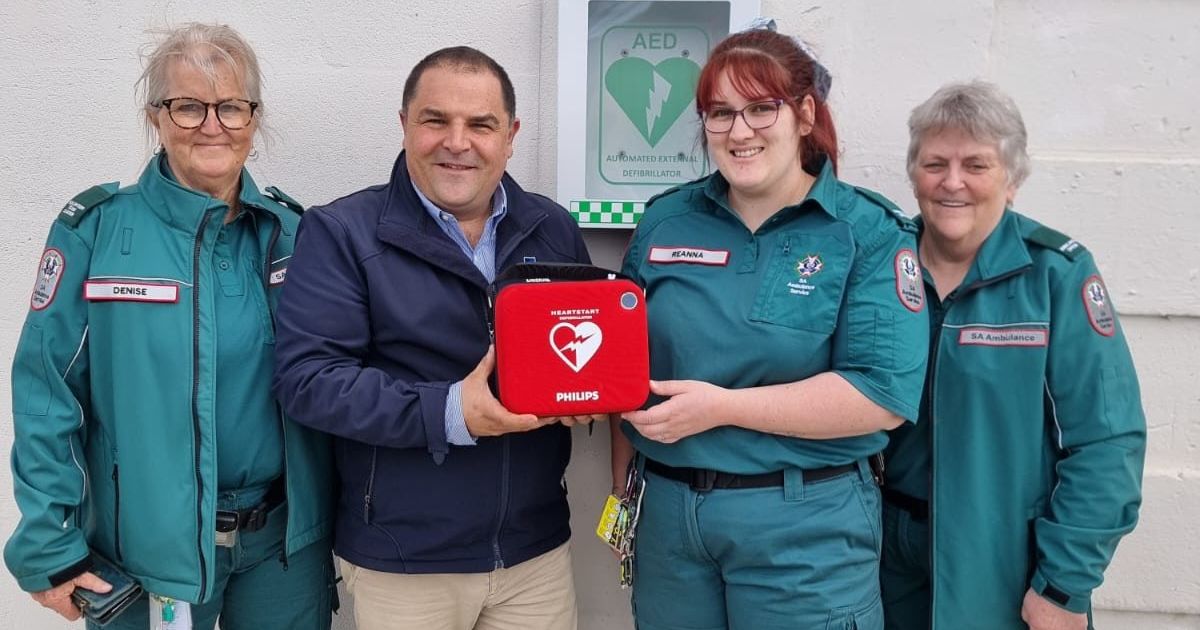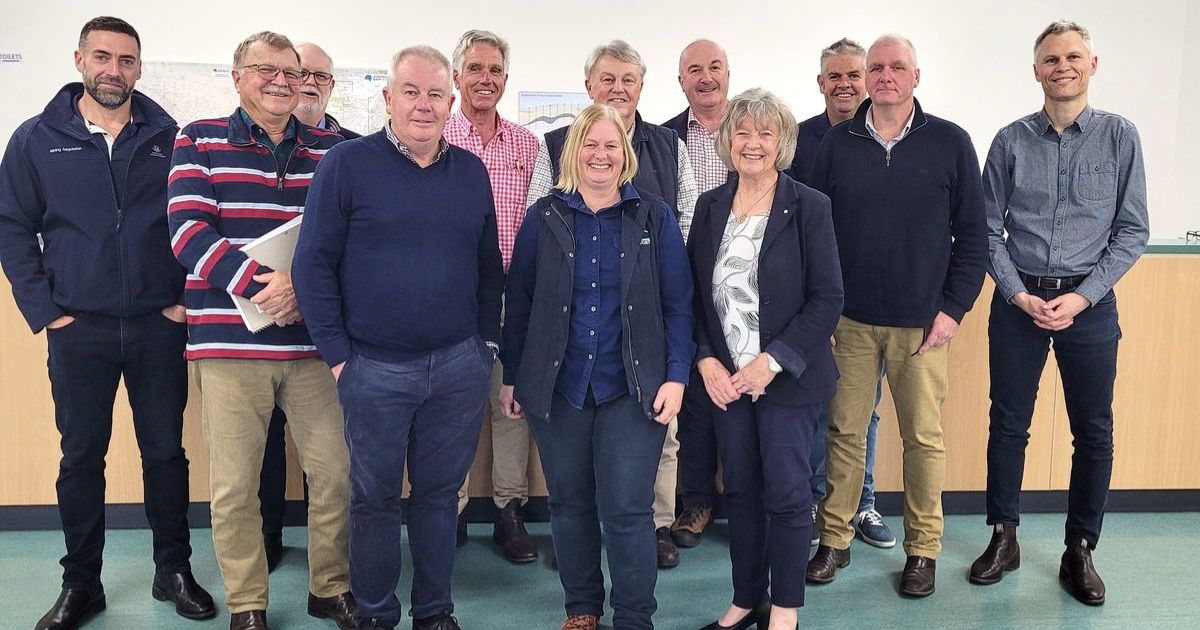Conservation warriors honoured
Two Limestone Coast based conservation warriors are coming to the end of their reign as leaders in their field after scooping the pool at the Rotary Club of Burnside awards – the only awards designed to acknowledge Department for Environment and Water employees and volunteers.
Lower Limestone Coast district ranger Ross Anderson was honoured with the Leadership in Conservation award, while Friends of Mount Gambier Area Parks president Kevin Mott was named the Volunteer of the Parks award winner.
Both have a long history of prioritising conservation in the region.
Ross has worked in the region for more than 20 years, encouraging, supporting and coordinating volunteer groups, including Friends of Shorebirds SE (FoSSE) and Mount Gambier Area Friends of Parks (MTGAFOP), to work with the National Parks staff in achieving valuable outcomes for conservation in the region.
It was back in April 2002 that Ross started supporting a group of volunteers interested in shorebirds, assisting with the first successful catch of migratory waders and with his encouragement the group became formalised as Friends of Shorebirds SE (FoSSE) in 2005.
He continues as an active member of the group.
As District Ranger he integrates results of volunteer work into Parks operations, elevating the profile of vulnerable shorebird species so that more people consider their interaction and impact on these shorebirds and their coastal habitat.
Under Ross’s leadership, the FoSSE and the Limestone Coast Landscape Board have initiated several key projects over the past 20 years aimed at monitoring and better understanding shorebird movement, educating the public on protecting and improving habitat for vulnerable species, conserving bird populations and mitigating threats.
These key projects include feral animal control, monitoring shorebird disturbance, migratory bird studies, establishing the international significance of coastal lakes for birds.
Ross also worked closely with the Friends of Mount Gambier Area Parks (MTGAFOP), assisting in sourcing funding opportunities for the group to address conservation priorities, weed control and visitor asset improvements within his district.
Some of the projects he has supported MTGAFOP develop include control spread and removal from parks of feral plant species; suggested funding source for a beach stairway project to protect shorebird nests from uncoordinated access; revegetating grasslands at Pick Swamp; guided re-establishment of habitat areas for Spiny Crayfish; guidance for Piccaninnie Ponds fish ladder.
Ross’s considerable experience in fire mitigation and response is regularly called upon, from providing an opinion on use of fire to improve conservation through improved protection of remnant vegetation on parks or designing prescribed burns to achieve weed control and fuel reduction, as a State Incident Management Team member, or to provide advice to external agencies on bushfire response.
Ross has participated in incident management teams for major fires in South Australia, Victoria, New South Wales and California.
More recently Ross completed a study tour into Victoria investigating Victorian fire management regimes and has successfully trialled some of these techniques in prescribed burns locally.
Kevin also boasts a long association with conservation projects in the region.
He became a founding member of the Friends of Mt Gambier Area Parks (FoMGAP) volunteer group, and has been their President for the past 25 years, also taking responsibility as Safety Officer to ensure the group operates in safe working conditions.
Kevin was a key player in the 2012 NRM Community Grant funded Glenelg Freshwater Spiny Cray habitat restoration project, planting several thousand trees and understory species along degraded karst springs in the Port MacDonnell area, linked to a 12 month program of water monitoring with all field work led by Kevin. In recognition, FoMGAP was awarded the McLaren Shield for this project.
FoMGAP undertook propagation and re-planting of the vulnerable Ixodia achillaeoides ssp Arenicola, known only from two sites in the Limestone Coast, the most important being at Douglas Point. FoMGAP members relocated the track at Douglas Point to avoid these plants as well as build steps to the beach and erect fencing to protect native vegetation and the fragile coastal soils.
Kevin instigated a beach erosion survey at Piccaninnie Ponds Conservation Park beach, in the vicinity of the ponds’ outlet, which discharges onto the beach, demonstrating substantial erosion and ingress of the coastline in this fragile wetland environment.
FoMGAP installed the first Piccaninnie Ponds board walk and viewing platform and the area between the main carpark and beach, originally crisscrossed with tracks, has now been fully revegetated with no tracks through fragile dune vegetation.
FoMGAP undertakes annual walking track maintenance in several parks. Kevin led trial revegetation of grassland plots in Pick Swamp (Piccaninnie Ponds Conservation Park) utilising innovative techniques including the removal of topsoil to reduce nutrient rich soil and weed seeds. This trial was successful and the group are expanding these trial plots in 2023 using a similar methodology and funding through volunteer grants.
While revegetation is a focus of FoMGAP winter working bees, under Kevin’s leadership FoMGAP has retained weed control as a primary objective, recognising the threat weeds pose to conservation areas.
Kevin’s extensive caving knowledge and experience have been shared with the Friends of Naracoorte Caves through his assistance and membership over many years and his maps of caves there are utilised by the Naracoorte World Heritage staff and researchers.
Kevin’s conservation and environment volunteering has included Field Naturalist Groups, Cave Exploration Group SA, the Australian Cave and Karst Management Association, School Councils and the District Council of Grant Environment Advisory Committee, establishing the Water Watch program in the region, BlazeAid, and presentations, meeting assistance and conducting field days with environmental themes for the University of the Third Age.



















